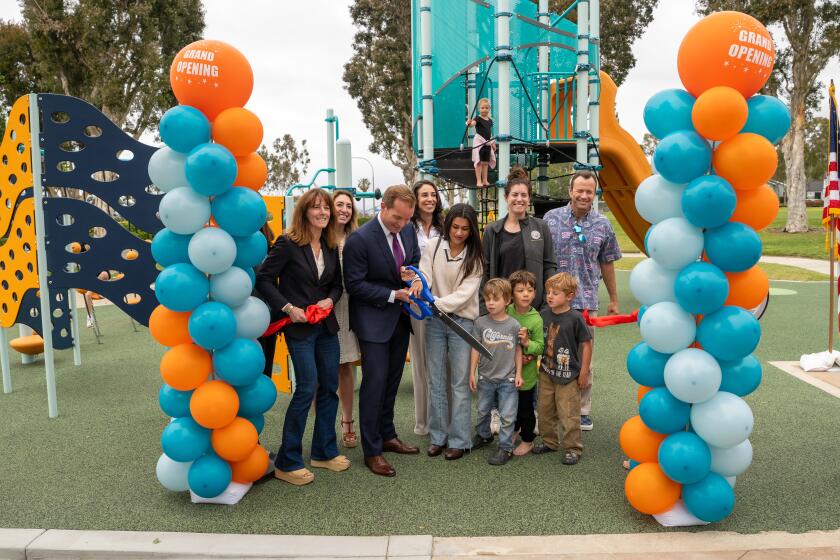A lesson in when to jibe and when to jive
- Share via
Politicians are in the business of criticizing. They criticize
opponents’ positions, incumbents’ performance and everybody’s
intelligence. But today I can officially report that political
criticism has finally gone too far.
The culprit: U.S. Rep. Curt Weldon. The topic: Federal Government
performance pre-9/11. The allegation: that two things “just don’t
jive.”
That’s right, for the first time in United States history, a
politician has found a way to criticize others for not being -- of
all things -- sufficiently funky. According to Weldon, the two things
in question (it doesn’t matter what they were) failed to boogie, fell
short of the ideal of getting down, and were pathetically inadequate
in the goal of getting their groove on. In other words, their attempt
to bust a move left said move sorely unbusted.
I kid Curt. I kid because I love. But even as I pick on the poor
guy for the little language flub he made in a press conference, it’s
only fair that I confess that I’ve made the same mistake a million
times. And I expect I’ll make it a million more. If I didn’t confess
that, I would just be pouncing on someone else’s all-too-human
mistake for the cynical goal of advancing my own agenda. And no poor
politician has ever done anything to deserve that kind of treatment.
My agenda, of course, is to offer a lesson in the difference
between “jive,” “jibe” and “gibe” -- something those fat cats in
Washington don’t want you to know.
The best example I can recall of two things that don’t jive hails
back to the 1992 presidential inauguration. It involves the vice
presidential couple, Al and Tipper Gore dancing to “Don’t Stop
Thinking About Tomorrow.” If ever two things didn’t jive, Al and
Tipper were them.
That’s because “to jive” means to get funky, specifically to dance
to swing music, or to mock or tease. Think of expressions such as
“You’re jivin’ me, brother,” spoken by film characters such as
Superfly and the last meaning becomes clear.
What Weldon meant to say was that the two things didn’t “jibe.”
But because he got the word wrong, he left himself vulnerable to my
long-winded gibe.
“Jibe,” according to “Garner’s Modern American Usage,” means “to
accord with, to be consistent with.”
Author Bryan Garner offers a handy little example of correct
usage. “The sight just doesn’t jibe with the image of her character.”
For Weldon, this means that his two things didn’t jibe.
As if those two words weren’t confusing enough, enter “gibe,”
which I cleverly planted a few paragraphs up. This whole column could
be perceived as a nasty “gibe.” That’s because “gibe” means “a
caustic remark or taunt.”
Another Garner example: “Irving Lewis ... personified the faceless
civil servants who, for all the gibes about pointy-headed
bureaucrats, make government work.”
Too bad Weldon didn’t confuse “jibe” with “gibe” because then I
wouldn’t have known the difference. They’re both pronounced the same
-- with a j-sound.
“Gybe,” as it’s spelled in British English, and which in American
English is unfortunately spelled “jibe,” is a sailing term Garner
defines as “to shift a sail from one side of a vessel to the other
while sailing before the wind.”
And of course when you think of wind, you think of politicians,
because these two things definitely jibe.
And that gibe is no jive.
* JUNE CASAGRANDE is a freelance writer. She can be reached at
o7JuneTCN@aol.comf7.
All the latest on Orange County from Orange County.
Get our free TimesOC newsletter.
You may occasionally receive promotional content from the Daily Pilot.



